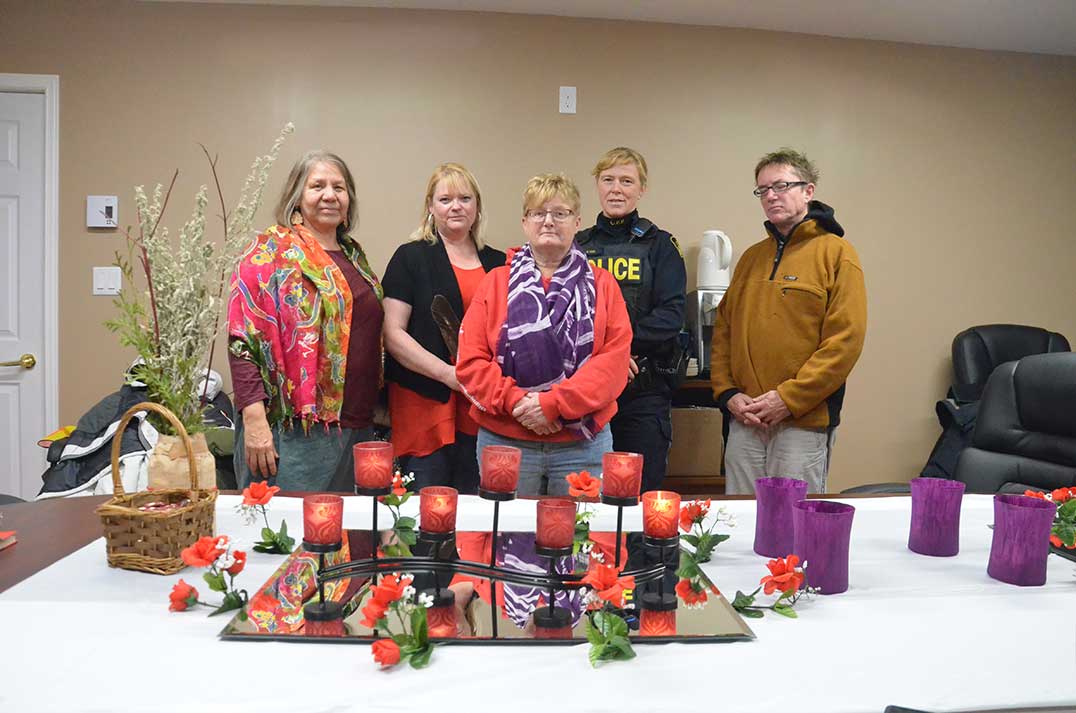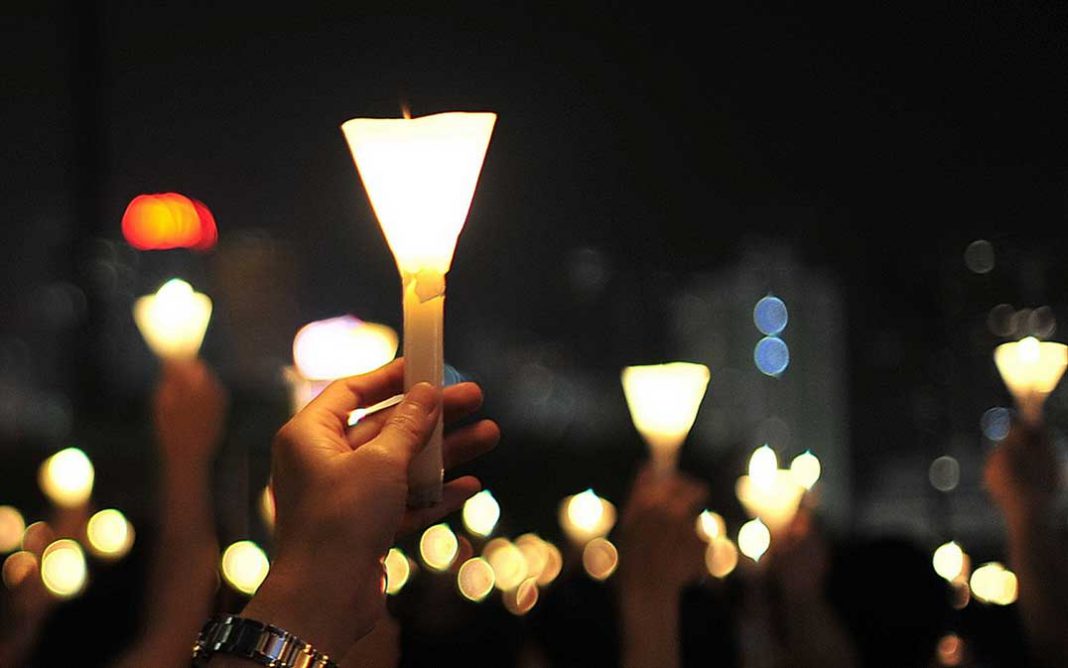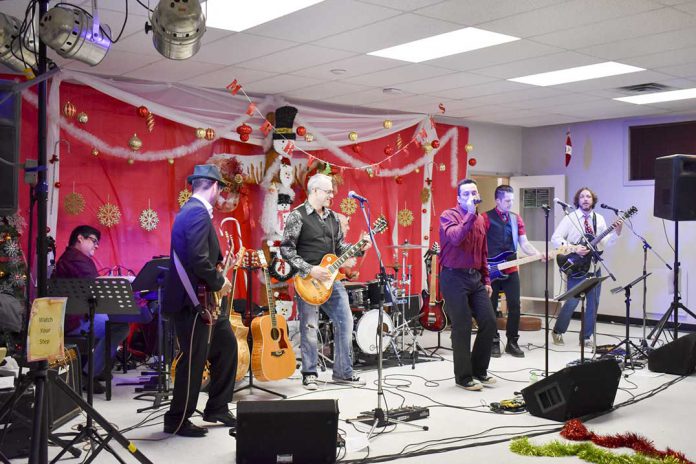MINDEMOYA—A small group of hardy individuals braved the strong winds and snow of the first significant blizzard of the season on the evening of Wednesday, December 6 to attend a vigil in honour of the National Day of Remembrance and Action on Violence Against Women held at the Mindemoya gazebo—joining groups across the nation in sombre solidarity.
The National Day of Remembrance and Action on Violence Against Women began after 14 women were slain at Montreal’s l’École Polytechnique on December 6, 1989 and the reading of their names has been a part of many of the vigils throughout the past decades, but this year the families of the slain women requested that practice be discontinued, noted organizer Tracey Van Horne, woman abuse outreach counsellor at Manitoulin Family Resources (MFR).
Those attending the vigil shared their own experiences of violence against women before setting out for the MFR boardroom where light refreshments and welcome hot beverages awaited to chase away the winter’s chill.
Manitoulin OPP Community Services Office Marie Ford shared her first experience of dealing with domestic violence when an abused woman was killed by her abuser during Constable Ford’s first day on the job. “While she was on the phone screaming for help she was being murdered,” recalled the officer.
“We had interactions with him before and removed him from the house,” she said. In those days, the tendency for police forces was to simply remove the abuser from the family home—too often with tragic consequences. “Policing has changed so much for the better,” said Constable Ford.

photo by Michael Erskine
The keynote speaker for the vigil was Janice Trudeau, who worked for the Wabano Centre in Ottawa in recent years, but recently returned home to Wiikwemkoong and has just finished a contract with Noojmowin Teg Health Services.
Ms. Trudeau noted the current issues (“the mess”) surrounding the National Inquiry of Murdered and Missing Indigenous Women and Girls “and men,” she added. “We should remember the missing Indigenous men as well, we are just coming up to the end of the 16 Days of Activism Against Gender-Based Violence. Being active in standing up against violence is something that we should do all the time.”
She noted that the fundamental flaw in the MMIWG national inquiry has been that it is based on a colonial system and not a grassroots Indigenous approach.
Ms. Trudeau spoke of her own experiences in supporting her friend Michelle, whose daughter Cheyenne fell into bad company after moving to Toronto. “Cheyenne was beautiful when I first met her,” she recalled. “She met somebody and had a baby, moved home. When she was 20 she got involved with some bad people. She called home and said that she was in trouble. Later that night, she was thrown from a balcony 23-24 floors. Her attacker has not been brought to justice.”
Ms. Trudeau’s cousin from Birch Island, Sonya Cywink, was also murdered, leaving behind a small child. “Her body was found in a wooded area and she had died from blunt force trauma to her head, her murderer was never found.”
“Too many of our young women are exploited by predators,” she said, “people who get them involved in drugs and addictions. We have to stand up for the women who have been lost to violence.”
Ms. Trudeau presented MFR with a bundle of medicines that can assist with healing from trauma, particularly sage, but also cedar and willow, that she had won at a recent conference in Little Current.
“Sage calms the spirit,” she said, noting that it is important that the women’s shelter be open to Indigenous women using the medicines in their traditional way. “This is the start of your bundle.”
Following her talk, Ms. Trudeau played the song ‘Porch Light,’ written and performed by the 2016 Canadian Folk Music Award winning Indigenous duo Twin Flames. “This song was written in honour of our Missing and Murdered Indigenous Women and Girls,” said Ms. Trudeau.




